Three main subtypes of TK2d have been described:
- Early onset begins before the age of 1-4 years. This subtype of TK2d rapidly progresses to death often in 1-2 years.
- Childhood-onset begins between the ages of 1 and 12. Most individuals with this subtype of TK2d survive more than 13 years after the first emergence of disease symptoms.
- Late-onset begins after 12 years of age. In general, individuals with this subtype of TK2d may be expected to live 23 years after disease onset.
Most reported cases of TK2d have been classified as either the early onset or childhood-onset subtype[2].
TK2d has only been recently characterized, and its prevalence is not yet clear. Currently, there is no known cure for TK2d. Symptomatic treatments that address the manifestations of the disorder can improve an individual’s quality of life. Additionally, initial studies indicate that deoxythymidine (dThd) and deoxycytidine (dCyt), a treatment undergoing investigation in clinical trials and available on a limited basis through open-label compassionate use, may significantly improve outcomes for individuals with TK2d[3].
- epilepsy
- heart problems
- kidney problems
- multiple bone fractures
- difficulty or inability to move the eye
- drooping eyelids
- respiratory difficulties
- hearing loss
- molecular genetic testing for mutations in the TK2 gene
- blood tests for the creatine kinase enzyme
- a muscle biopsy
- brain-imaging such as a computed tomography (CT) scan or magnetic resonance imaging (MRI)
- a gastrostomy tube for feeding difficulties
- chest physiotherapy
- non-invasive or invasive ventilator for respiratory problems
- physical and occupational therapy
- cane, walker or wheelchair for muscle weakness
- cochlear implants for hearing loss
- anti-epileptic medications for seizures
Since TK2d is an inherited disorder, genetic counseling for the family may also be recommended.
Families may also consider deoxythymidine (dThd) and deoxycytidine (dCyt), which is currently available on a limited basis to individuals with TK2d through open-label compassionate use and clinical trials in the US and European Union (EU). Early expanded access data suggest that this experimental treatment may improve survival and motor functions in individuals with TK2d[3,4].
Are there any clinical trials for TK2d?
To see what trials you may qualify for, visit our Clinical Trials page – which also included a Clinical Trials Finder Tool. We also highly encourage you to join our patient registry, mitoSHARE, where we are actively recruiting TK2d families.
What are the next steps if my loved one has TK2d?
- Get Support
Connect with our Support & Education Team online, via email at support@umdf.org or phone at (888) 900-6486.
- Check our Clinical Trials Finder
Use our Clinical Trials Finder to see if you qualify for any clinical trials.
- Join our patient registry, mitoSHARE
We are actively recruiting TK2d families to participate in our patient registry, mitoSHARE. Patient registries like mitoSHARE are an integral part in charting a course toward treatments and cures for TK2d and other mitochondrial diseases. There are currently over 30 active mitochondrial disease clinical trials. Next generation patient registries like mitoSHARE are an integral part of expanding that number.
- Become an advocate
Ask your representatives to prioritize mitochondrial disease research and support via the UMDF Advocacy Center. We’ll send regular action items so you – and your friends and family – can let Congress know where we need their support. Click here to sign up.
- Join the conversation online
– UMDF Social Media Support Groups: Facebook Support Group
– UMDF News & Updates: Facebook | Twitter | Instagram | YouTube
- Get involved
Join the fight by giving your voice, generosity, time, or energy. Click here to see how you can help.
UMDF is helping chart a path toward treatments and eventual cure of mitochondrial diseases like TK2d through:
- Research & Funding: UMDF has provided more than $15 million in research funding to find treatments for diseases like TK2d. UMDF advocacy has helped secure an additional $55 million in federal funding via the Department of Defense and National Institutes of Health.
- Data: Over two decades ago, UMDF pioneered patient registries for the mitochondrial disease community. Today, our next generation patient registry, mitoSHARE, is helping chart a path toward the treatment and eventual cure of mitochondrial diseases.
- Patient Support: Thousands of families just like you depend upon UMDF for support and education on diseases like TK2d. Attendance at our support meetings annually tops 7,000, including disease specific support meetings for families.
- Clinician Support: To help educate clinicians on diseases like TK2d, we feature monthly Bench to Bedside clinician seminars, host the annual Mitochondrial Medicine Symposium, support the Mitochondrial Care Network, and educate clinicians on our Mito U platform.
- Advocacy: In January 2022, UMDF hosted a TK2d FDA Listening Session – in conjunction with MitoAction and TK2 Cures – featuring numerous FDA staff, four caregivers of affected youth, three adult patients, clinician Dr. Michio Hirano of Columbia University, and speakers from the advocacy groups.
- Surveys: Click here to view the “Voice of the Patient” TK2d survey results conducted in late 2021 / early 2022 as part of the TK2d FDA Listening Session.
- Wang J, El-Hattab AW, Wong LJC. TK2-Related Mitochondrial DNA Maintenance Defect, Myopathic Form. 2012 Dec 6 [Updated 2018 Jul 26]. In: Adam MP, Ardinger HH, Pagon RA, et al., editors. GeneReviews® [Internet]. Seattle (WA): University of Washington, Seattle; 1993-2022. https://www.ncbi.nlm.nih.gov/books/NBK114628/
- Garone C, Taylor RW, Nascimento A, et al. Retrospective natural history of thymidine kinase 2 deficiency. J Med Genet. 2018;55(8):515-521. doi:10.1136/jmedgenet-2017-105012
- Domínguez-González C, Madruga-Garrido M, Mavillard F, et al. Deoxynucleoside Therapy for Thymidine Kinase 2-Deficient Myopathy. Ann Neurol. 2019;86(2):293-303. doi:10.1002/ana.25506
- Berardo A, Dominguez-González C, Engelstad K, Hirano M. Advances in Thymidine Kinase 2 Deficiency: Clinical Aspects, Translational Progress, and Emerging Therapies. J Neuromuscul Dis. 2022;9:225-35. doi:10.3233/JND-210786
